How to Help Your Child Adjust to Kindergarten Without Tears
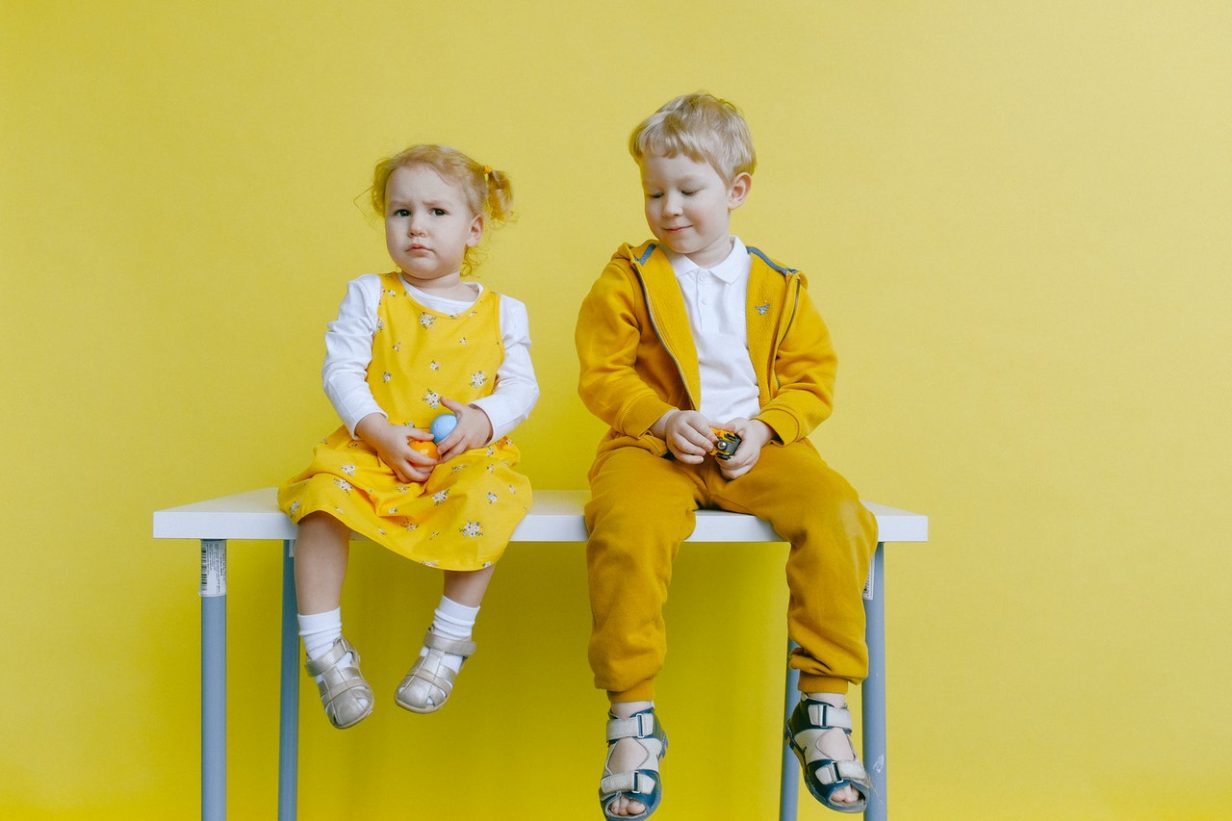
Many children have a hard time adjusting to kindergarten, and it can be a tough time for moms and dads, too. It represents a big shift in a child’s daily routine, and there’s usually a challenging adjustment period to endure as the little one makes the transition to kindergarten, building towards elementary school.
The process, however, will vary from child to child. Some may need a briefer period of time to adapt and become familiar and comfortable with their kindergarten teachers and setting.
In this article, we will tell mums and dads how the adaptation of the child towards the preschool establishment is formed, what it consists of, what kind of steps towards adaptation exist, and how to help the child to adapt themselves to a new group of children, quickly.
Make sure that the stage of adaptation of your child is going smoothly, or check whether they could have issues in order to be able to assist them quickly. Use the Findmykids app together with the kids’ smartwatch – connect with the child instantly, listen to sounds around them, and always know where they are.
Contents:
- What Does “Kindergarten Adaptation” Really Mean?
- What Affects How Easily a Child Adapts?
- How Parents Can Help Make the Transition Smoother
- How to Say Goodbye Without the Tears
- FAQs
What Does “Kindergarten Adaptation” Really Mean?

Prostock-studio/Shutterstock.com
Imagine the world of a small child. Their dearest mum and dad, familiar toys, the warm bed, the environment of their home, and their own rhythm of the day.
All of a sudden, one day everything changes. Mom takes the child to an unfamiliar place and leaves them with an unfamiliar person. In this place, everything is unknown – the toys, the bed, and the food are all not the same as at home. And most importantly, there are many unfamiliar children around who often cry, and some may not even be nice. In this place, the child now needs to listen to the teacher and do what they say. This place is called a kindergarten.
⠀
When getting into an unknown environment, the child goes through very significant stress. In order for them to get used to it, they need to go through a period of adaptation. This term suggests the ability to adapt to conditions of the outer environment and to get used to them.
During the adaptation stage, the functioning of almost all systems of the child gets modified.
The adaptation of the child to the conditions of the kindergarten is most often related to the following processes:
- Regression of skills occurs (the child temporarily “forgets” how to go to the potty, hold a spoon, etc.)
- Sleep and appetite both deteriorate
- The child looks depressed, unenergetic, and slowed down
- Frequent tantrums and scenes on every occasion
Three categories of children exist. Some of them start experiencing problems with adaptation right away, while others, in 2-3 weeks, and the third category does not face any major issues. This is related to a number of factors and depends on the adaptability skills of the child.
Do not be afraid of the changes in the behavior of your son or daughter. This way, the child’s body copes with the stress and adapts to new conditions.
Key Stages of the Adjustment Period

Mild, medium, and severe adaptation phases of the child to kindergarten can be distinguished.
Mild phase
The child who is going through a mild phase will take on average 2-4 weeks to adapt. The mild adaptation phase will have the following characteristics:
- Sleep: еhe child sleeps peacefully during daytime and nighttime naps, may sometimes wake up, but would easily fall asleep again.
- Appetite: good, pickiness when selecting food may be present.
- Emotional state: calm and without major spikes.
- Behavior: without tears and tantrums, they let go of their mother and play around with the kids in their class. They can keep themselves busy when playing.
- Interactions with adults and peers: the kid makes contact with teachers and peers, can ask a teacher for help, and gets actively involved in playing with peers.
Even with a mild level of adaptation, a child may experience sleep and appetite issues at first.
Medium phase
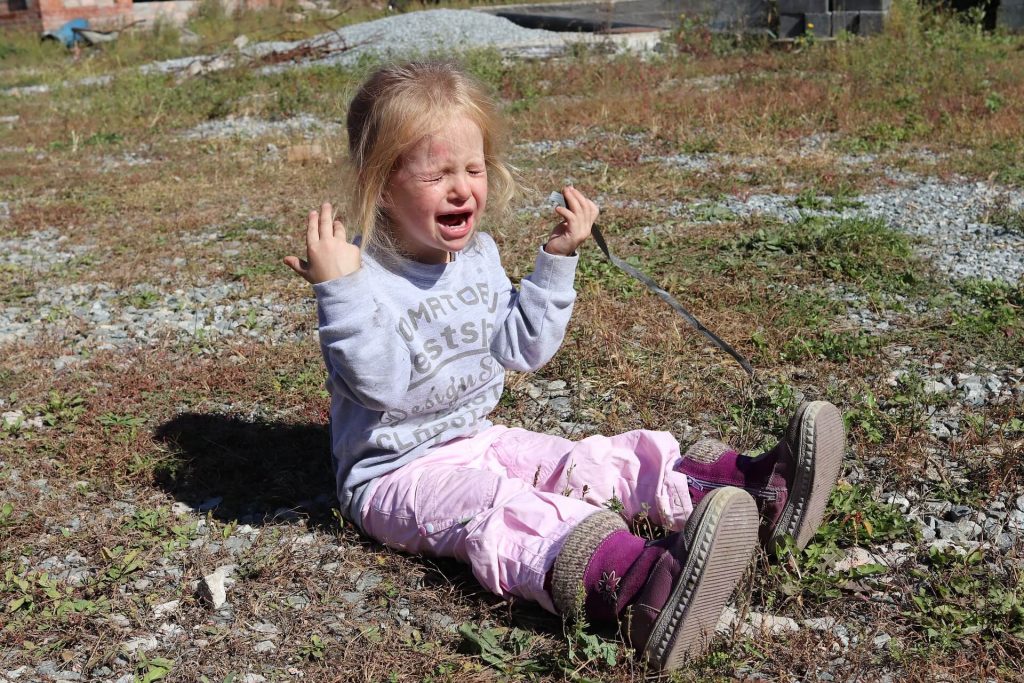
Prostock-studio/Shutterstock.com
The medium phase of adaptation lasts for more than a month. The child is often sick and their adaptation to kindergarten is more complex due to long pauses.
It can be said that the adaptation is of a medium intensity when the following criteria are fulfilled:
- Sleep: the child does not sleep during the daytime nap time; if they manage to fall asleep, their sleep is not calm and is often interrupted.
- Appetite: may refrain from eating the majority of the food offered, and does not eat frequently.
- Emotional state: cries often and is often sad; mood swings occur frequently. They can distract themselves with a game, but not for a very long time.
- Behavior: it is difficult for them to part with their mother; they stand and stare out the window on their own for a long time after her departure.
- Interactions with adults and peers: the child does not display interest in communication and constantly asks the teacher if mom will be returning soon.
A child with a severe degree of adaptation may be getting used to kindergarten for more than 2 months, or may not get used to it at all. At this point, the doctors recommend refraining from attending preschool.
Severe phase
A severe process of adaptation is familiar to children who experience health issues.
The following factors will suggest that the child is finding it hard to get used to the kindergarten:
- Sleep: the child does not sleep during the daytime nap. At night, their sleep is irregular, restless, and often filled with nighttime fears.
- Appetite: low, may refrain from having a meal.
- Emotional state: suppressed, the child becomes antisocial or aggressive.
- Behavior: cries after the mother leaves, screams, does not want to interact with anyone, may be sitting in the changing room for a long time.
- Interactions with adults and peers: does not get in contact with anyone, displays aggression to children and adults.
The adaptation period is considered to have come to an end when all of these aspects have been stabilized.
Make sure that the stage of adaptation of your child is going smoothly, or check whether they could have issues in order to be able to assist them quickly. Use the Findmykids app together with the kids’ smartwatch – connect with the child instantly, listen to sounds around them, and always know where they are.
How Kids Get Used to a New Environment

Prostock-studio/Shutterstock.com
The process of adaptation of the child to kindergarten occurs in a couple of stages.
Stage One – the period of maladjustment. No matter how the parents prepare the child for the nursery, at first, they will still be in a state of stress and constant tension. It is difficult for a child to part with their parents; they often cry and throw tantrums. They may start experiencing frequent, repetitive colds.
Stage Two – adaptation period. The protective mechanisms of the psyche are placed on standby, the child begins to communicate with the teacher and with other children, participating in games, but still misses their parents and often enquires about them. At this stage, the baby is just beginning to get used to the new set of rules, so they may violate them and refuse to comply with some requirements of the teacher.
Stage Three – compensation phase. The process of adaptation comes to an end, the child gets used to their class and their teachers, to their new timetable, and calmly lets go with their parents for the whole day. Their emotional state becomes more stable, and their physiological indicators come to a norm.
What Affects How Easily a Child Adapts?
A number of factors have an impact on how long the child will get used to the new environment. Let’s discuss the main ones.
1. The age of the child
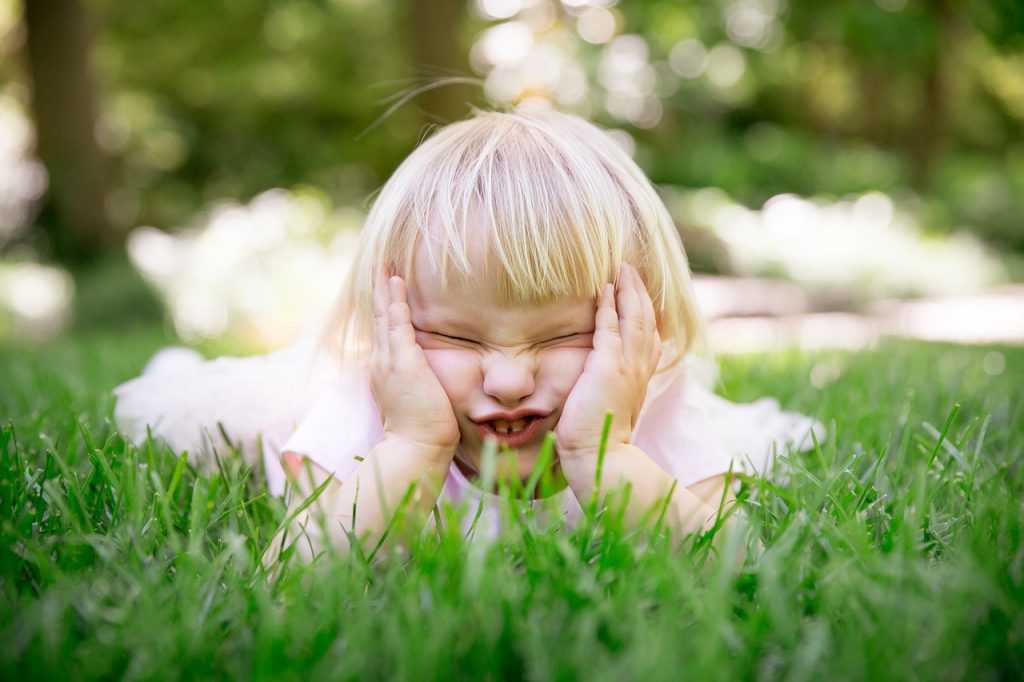
Prostock-studio/Shutterstock.com
The situation is such that many mothers strive to quickly send their child to kindergarten and return to work after maternity leave. Therefore, in recent years, there has been an increase in the need for a nursery that begins to accept children from the age of one and a half years old, which is available in very few preschool institutions.
Most experts believe that the younger the child, the harder their adaptation period is, since their immune system has not yet been strengthened, and the need for parental care and attention still remains strong.
Therefore, the optimal age for starting kindergarten is considered to be 2.5 – 3 years old. Pediatricians insist that parents should send their children to kindergarten no earlier than the age of three years old.
2. State of health
As we have already mentioned, it is hard to get used to kindergarten for children with health issues, frequent colds, and chronic diseases.
Therefore, parents should postpone kindergarten and wait until the child’s body can adapt to preschool without serious consequences.
3. The level of development of skills and knowledge

Prostock-studio/Shutterstock.com
By the beginning of their kindergarten life, children should possess all the necessary skills and abilities: going to the potty, holding a spoon, drinking from a cup, partially dressing and undressing themselves, and also being able to ask an adult for help and assistance.
If parents are used to doing everything for the child, it will be hard for the little ones to get used to independence. Accordingly, the adaptation period for them may be delayed.
4. The level of socialization
In kindergarten, the child will have to come into contact with a large number of children and adults. It would be good if they already have such communication experience. Otherwise, it will be very difficult for a kid who is accustomed to seeing only mom and dad next to them to get used to other children and teachers.
Also, the duration of adaptation depends on the personality of the teacher, the number of children in the group, the particularities of the child’s nervous system ,and the atmosphere within the family.
How Parents Can Help Make the Transition Smoother
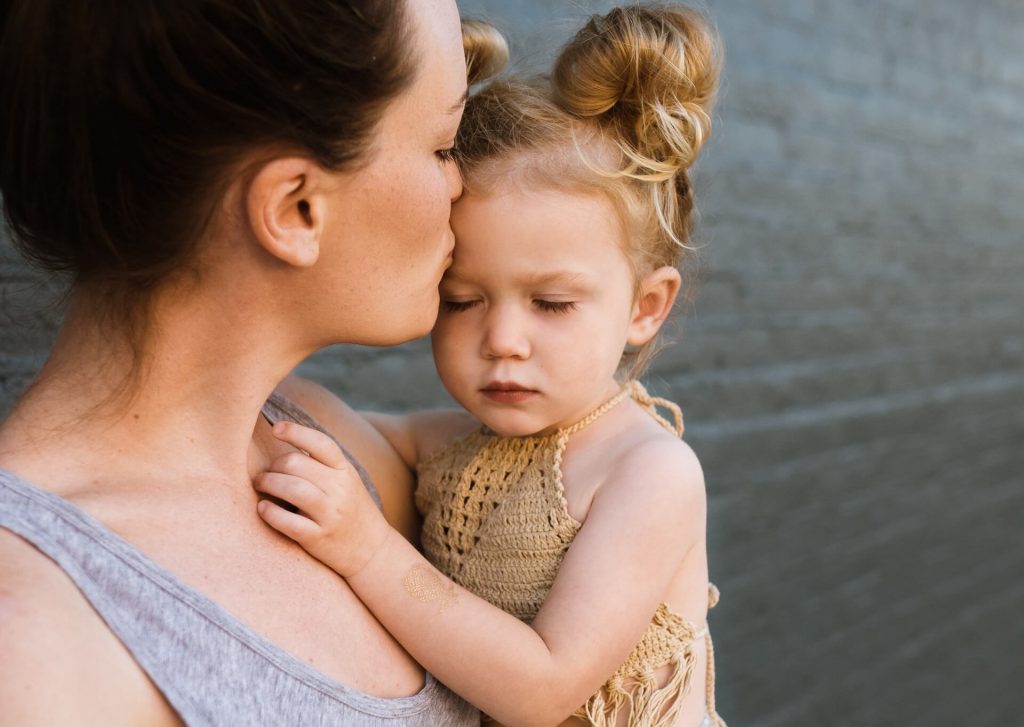
Prostock-studio/Shutterstock.com
Golden Rules for a Successful Start
- Rule 1. Get to know the workers of the kindergarten beforehand and familiarize yourself with the timetable and conditions of the place.
- Rule 2. The adaptation of children to kindergarten has to take place either during winter or summer in order to reduce the risk of infectious diseases.
- Rule 3. Vaccinations, medical examinations, and other visits to doctors must happen strictly before the child enters kindergarten.
- Rule 4. To begin with, the child should stay in kindergarten for 1-2 hours. It can be good if this time coincides with your morning walk.
- Rule 5. It is necessary to increase the time of the child’s stay in the kindergarten gradually, taking into account the recommendations of the teacher.
- Rule 6. If the child is sick, mom or dad needs to stay at home with them.
- Rule 7. Parents need to warn the teacher about all the particularities of the child’s behavior, their habits, and preferences.
- Rule 8. When taking the baby home, be sure to ask the teacher how the child behaved during the day.
If parents stick to these rules, they will significantly facilitate the period of adaptation of the child to kindergarten.
Expert Tips From a Child Psychologist
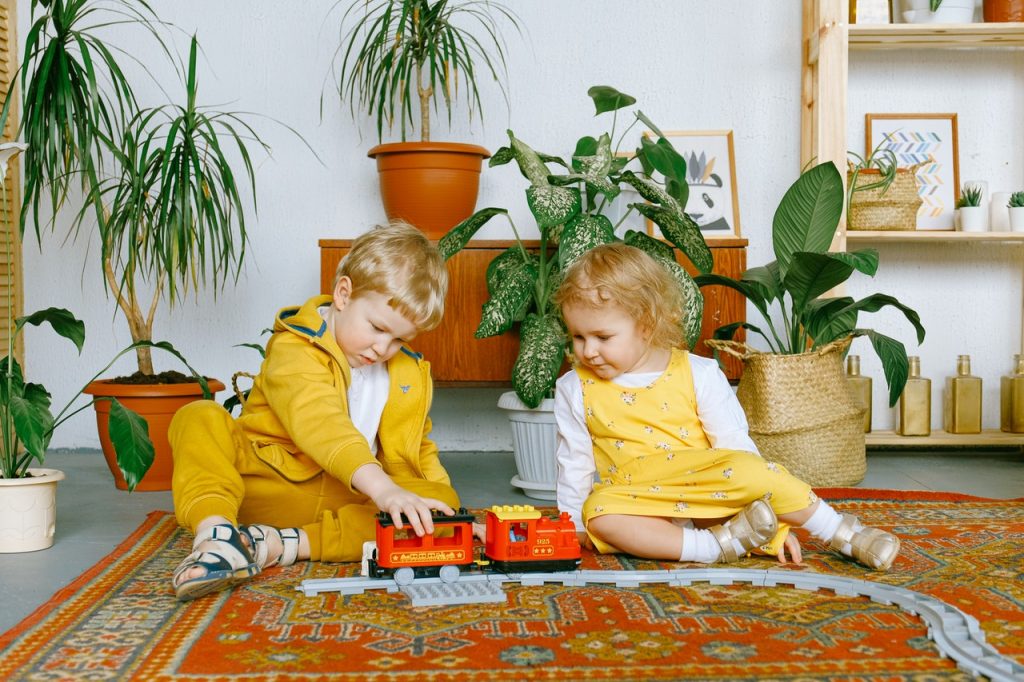
Prostock-studio/Shutterstock.com
- You need to start getting the child ready for kindergarten in advance.
Show the building of the kindergarten to the child and point to the windows where their classes will take place, as well as to the playground. Meet the teachers. It is not bad if the child learns their names before their first day. Draw the attention of your son or daughter towards the fact that all parents pick their children up in the evening and that no one stays for the night.
- The more the child knows about how to act in a childcare facility, the easier it will be for them during the period of adaptation.
Psychologists often suggest the use of roleplay that demonstrates common situations at kindergarten, such as “snack time”, “playtime,” or “bedtime,” that will allow the child to get used to these situations from the comfort of their homes.
- The child’s ability to adapt successfully will largely depend on the psychological state of their parents.
The calmer the mother and the father are towards the fact that the child starts attending preschool facilities, the more confident the child will feel in an unknown environment.
- Don’t forget to develop the necessary self-service skills in the child. Try to give your baby more independence, even if they do not know what to do yet.
- Pay attention to the development of your child’s communication skills.
The child must know how to communicate not only with other children but also with adults. Train their communication skills when visiting your friends, on the playgroun,d and during trips to relatives.

- The homemade food, just like the regime, has to be as close as possible to that of kindergarten. Even during weekends and festive events.
- Be nice and polite to teachers at kindergarten. After all, these are people whom you trust the most valuable people in your life – your children. And not only you, but 20 other moms and dads do so as well.
- During the period of adaptation, the child should not have any additional stress, such as moving home, parental divorce, or the birth of a second child. Try your best to ensure a relaxed family environment.
- Be more relaxed about minor illnesses after attending kindergarten.
During the period of adaptation, the child’s sensitivity to all outer influences becomes stronger. Additionally, their body cannot always cope with the mental stress. The illness is a protective mechanism of the body, both for children and adults. A sick child remains at home in a familiar environment. This will continue until they feel safe and comfortable, not only at home, but also in the kindergarten.
- There are special therapeutic fairy tales and stories that help the child facilitate adaptation to kindergarten. Read it in the evening to your child and discuss it with them. It will also be useful to watch cartoons and look at illustrations, and at mom’s and dad’s photos from kindergarten.
- Do not forget that after a long break (for example, due to illness), the child’s adaptation process starts again. This means that problems such as painful separation from the mother, tears, tantrums, and unwillingness to go to kindergarten will all return.
- Make use of modern technology in order to calm yourself down and to know how the child got used to the new environment, that they are not bullied by their peers and that the teachers are behaving appropriately. Purchase a GPS watch for your child (they are available even for the little ones) and install the Findmykids app on your smartphone. With this set, you will be able to connect with your child instantly and listen to what is happening around them in the kindergarten when you are not around. When purchasing the kids’ smartwatch on Amazon, the Findmykids license comes as a gift!
- If you are worried about strong changes in your child’s behavior associated with the adaptation period, seek help from a psychologist.
What Not to Do During the Adjustment Period

Prostock-studio/Shutterstock.com
- Being present in the changing room while the child is with their group of peers.
- Leaving all of a sudden without saying goodbye to the child.
- Scolding your child and punishing them for their unwillingness to stay in kindergarten.
- Leaving the child for the whole day after a long break from kindergarten.
- Speaking negatively about teachers and preschool institutions.
- Being dishonest to the child: saying that you will pick them up soon, if you are planning to do so only in the evening.
- Bringing a sick child to kindergarten.
- “Bribing” the child with sweets and toys in exchange for their attending kindergarten.
How to Say Goodbye Without the Tears
In order for the child to be able to let go with you and to interact with their peers easily, follow the straightforward recommendations below:
- Prepare your child in advance for the idea that they will need to go to kindergarten every day while mom and dad are at work.
- On the way to kindergarten, tell your child how good the day will be, what interesting games they will play there, what delicious food will be served, etc.
- Come up with your own ritual of saying goodbye to the child. It can be a kiss on the cheek and the touch of palms of the hand, or a short poem. The main thing is to always stick to it when parting with your son or daughter, not only in kindergarten, but also at home.
- Allow your child to take their favorite toy with them. In the absence of their mother, they will be much calmer if there is something dear and familiar nearby.
- Control your own emotional state. All of your worries and fears will certainly be passed on to the child.
- Clearly let the child know when you will be coming back: in the afternoon, after their nap time, or in the evening, so that they do not have any false expectations.
Dear parents, don’t forget that the key to a successful adaptation of a child to kindergarten is the correct preparation, psychological literacy of parents, as well as the atmosphere of comfort and emotional well-being within the family.
FAQs
How long does it take for kids to adjust to kindergarten?
That really depends on the child. Some adjust to the kindergarten classroom and routine in a matter of days, or just a few weeks, on average. Some take a lot longer, needing several months to fully adapt to this new environment and all the changes it brings. Parents can play their part by supporting their child’s individual journey, maintaining a consistent bedtime routine and sleep schedule, and so on.
How long does kindergarten anxiety last?
It depends on the child and the type of child care and support they receive. Some will only be anxious for the first few weeks and then get used to the new routine, and will suddenly be quite happy at kindergarten. Others may continue to experience feelings of anxiety and worry for several months and need continuous support to eventually feel comfortable.
Is it normal for kids to struggle in kindergarten?
Absolutely. Many kids have a hard time at first adapting to such a big shift in their lives. They’ve often spent their whole lives up to that point mostly at home, in a familiar environment, with parents and other relatives always nearby, and suddenly they’re in a totally different place, with other people and a new routine to get used to. It can also lead to other changes, like an earlier bedtime or more time interacting with other kids, which can all cause certain levels of stress or fear, at first. Fortunately, children do grow out of this.
What percentage of kindergarteners get held back?
In the U.S., statistics show that less than 2% of kindergarteners are held back. So it’s quite rare, but some children may lack the recommended social skills and motor skills needed to progress onward and have a positive experience in elementary school.
Проверьте электронный ящик



















